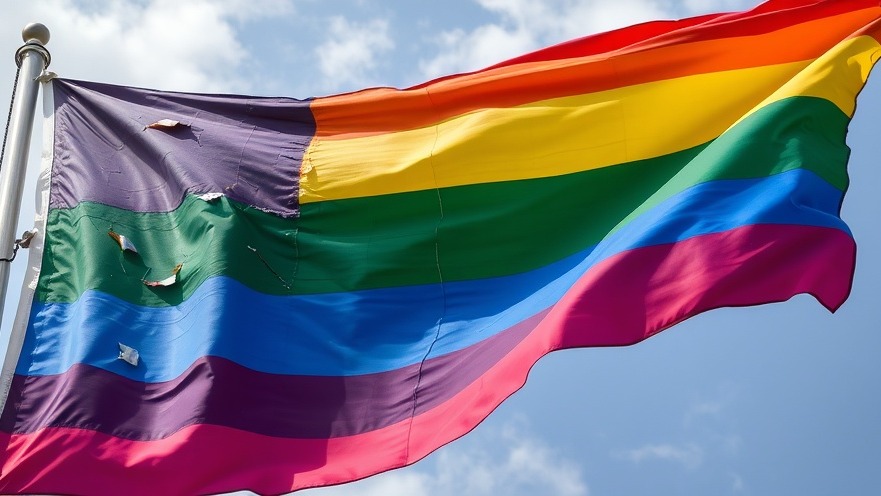
The Cancelled Study That Sparked Outrage in Waco
In a move that has ignited fierce debate across the religious and LGBTQ+ communities, Baylor University, a prominent Texas Baptist institution, withdrew its acceptance of a significant grant aimed at improving inclusivity for LGBTQ+ individuals within the church. The grant, worth $643,401, was awarded to the Diana Garland School of Social Work to research how churches could better minister to LGBTQ+ people and women, a critical issue that resonates with many in today's evolving social landscape.
The Personal Impact: Stories from Within
For individuals like AB Waters, a graduate of Baylor’s social work program, this decision feels profoundly personal. Growing up as a queer individual in a Southern Baptist environment, Waters experienced firsthand the heartbreak and isolation that can accompany a lack of understanding and resources for LGBTQ+ individuals. "I would probably be in a better place and not have struggled so much throughout my life, if my family had the resources or recommendations provided to my church back home,” Waters shared, reflecting the sentiments of many who see the need for greater support within their communities.
The Reaction: From Outrage to Support
Upon the announcement of the grant, many conservative voices, including over 60 Texas Baptist pastors, expressed their dissatisfaction with Baylor’s direction, asserting that it strayed from its traditional Christian values. Their open letter praising Baylor President Linda Livingstone’s decision to retract the grant highlighted a significant division within the church community regarding LGBTQ+ issues. On the other hand, leaders of churches that seek to affirm LGBTQ+ identities voiced their dismay, marking the university’s reversal as a step backward in fostering understanding and inclusion.
Academic Freedom vs. Institutional Values: A Conflict?
Livingstone’s statement indicated that the university's concerns didn’t stem from the research itself, but were rooted in apprehensions about advocacy that could conflict with Baylor’s long-standing Statement on Human Sexuality, which prohibits advocacy for alternate sexualities. This presents a dilemma: can religious institutions foster academic exploration while simultaneously adhering to strict doctrinal beliefs? The conversation appears to reflect a broader tension that merits exploration.
Past Controversies and Their Legacy
Baylor’s recent history hasn’t made the institution immune to scrutiny. In 2022, the university faced criticism after chartering an LGBTQ+ support group named PRISM. This led to calls for clearer policies regarding inclusivity and support for LGBTQ+ students, and now, with the cancellation of the grant, the question arises: how will Baylor navigate its commitment to both its religious values and the changing social tide surrounding LGBTQ+ issues?
Looking Forward: Insights and Predictions
The withdrawal of this grant could be interpreted in various ways, especially in light of current societal shifts toward greater acceptance of LGBTQ+ individuals. This issue is not merely academic; it has real-world ramifications for many individuals who see the church as a pivotal part of their identity. The potential for future studies and programs that might address these concerns can’t be underestimated, especially as society evolves.
Conclusion: Urging Community Engagement
Baylor's recent decision highlights the ongoing tug-of-war between tradition and progress within religious contexts. As community members reflect on the implications of this decision, appreciation for varied perspectives—whether supportive or critical of the university’s actions—will be crucial for fostering dialogue and understanding. Those in the Texas region who care about inclusivity and social justice are encouraged to participate in discussions that advocate for the LGBTQ+ community and their rights. In a world that thrives on diverse opinions and values, every voice matters.
 Add Element
Add Element  Add Row
Add Row 



Write A Comment